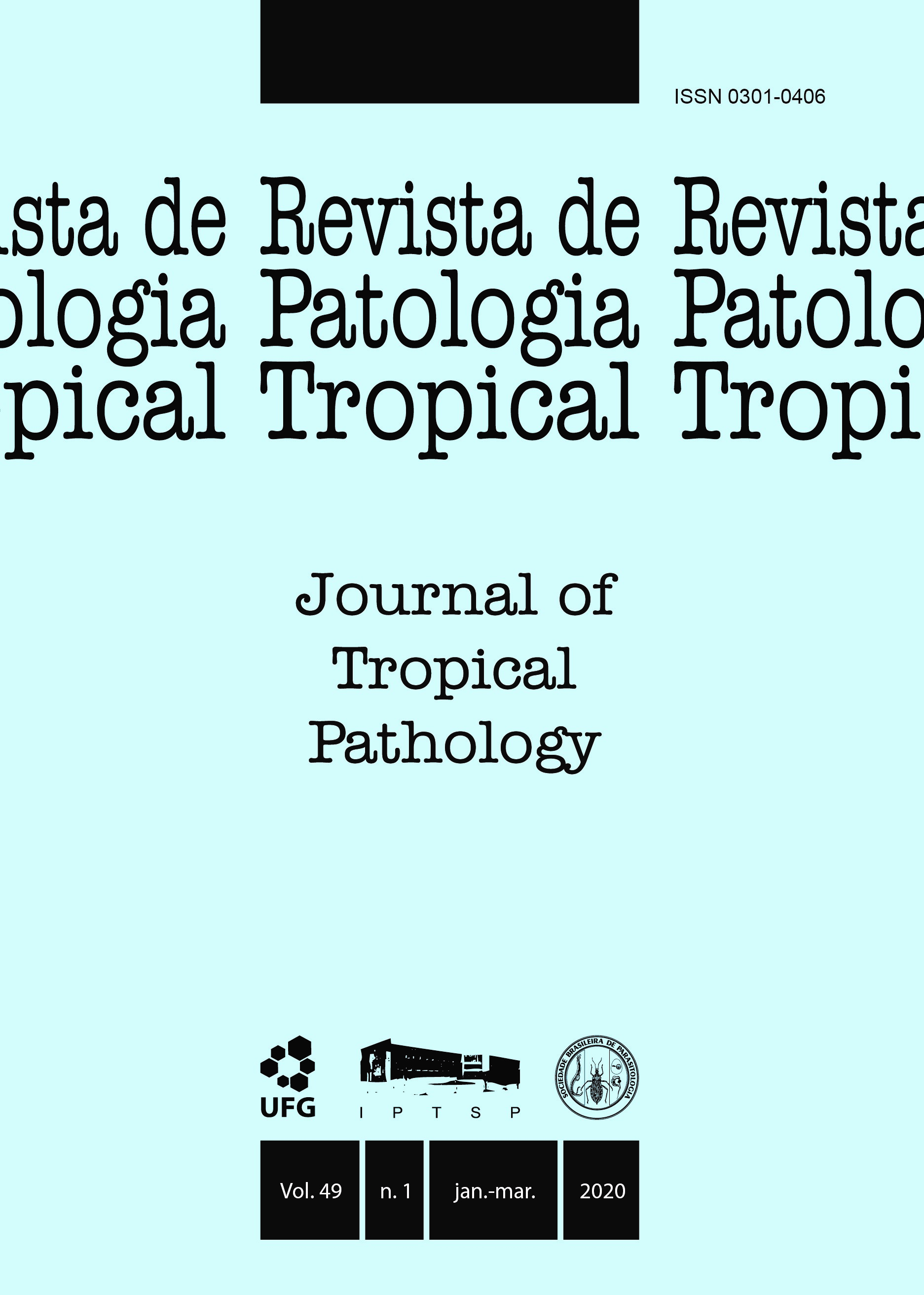INFLUENCE OF FOOD TYPE AND CALCIUM SUPPLEMENTATION ON GROWTH, OVIPOSITION AND SURVIVAL PARAMETERS OF Biomphalaria glabrata AND Biomphalaria straminea
DOI:
https://doi.org/10.5216/rpt.v49i1.62089Abstract
Schistosomiasis is a parasitic disease caused by Schistosoma mansoni whose intermediate host is the snail of the genus Biomphalaria. This snail is geographically widespread, making the disease a serious public health problem. The purpose of this study was to analyze the growth, reproductive rates and mortality of B. glabrata and B. straminea in different calcium concentrations and food types. Freshly hatched snails stored in aquariums under different dietary and calcium supplementation programs were studied. Under these conditions, all
planorbids survived, so there was no mortality rate and 79,839 eggs of B. straminea and 62,558 eggs of B. glabrata were obtained during the 2 months of oviposition. The following conditions: lettuce + fish food and lettuce + fish food + powdered milk resulted in the highest reproductive rates. In addition, supplementation with calcium carbonate and calcium sulfide in three different concentrations did not significantly influenced the amount of eggs or ovigerous masses. Thus, this study shows that changes in diet are crucial for the survival/oviposition of these planorbids, being an important study tool for population control. Calcium is also a
key factor in these conditions, but more work is necessary to better assess its effect on snail survival.
KEY WORDS: Laboratory breeding; Biomphalaria glabrata; Biomphalaria straminea; food type; calcium concentration.
Downloads
Downloads
Published
How to Cite
Issue
Section
License
The manuscript submission must be accompanied by a letter signed by all authors stating the full name and email address, confirming that the material has not been published or is under consideration for publication elsewhere, and agreeing to transfer copyright in all media and formats for Journal of Tropical Pathology. The authors will not be paid for published articles. They are solely responsible for the content of those articles, even if the Editor holds the right to adjust them to the norms of the journal.
The reviewers will not be paid for the peer review process.

